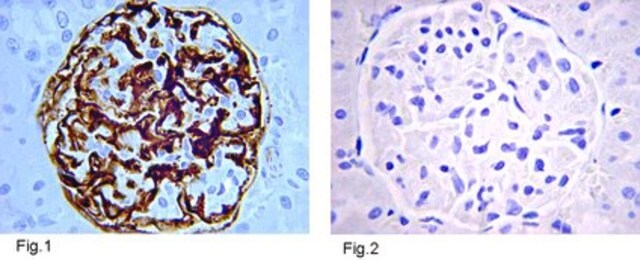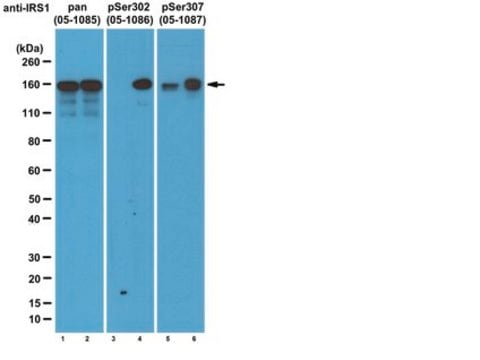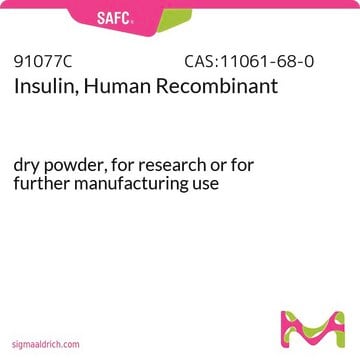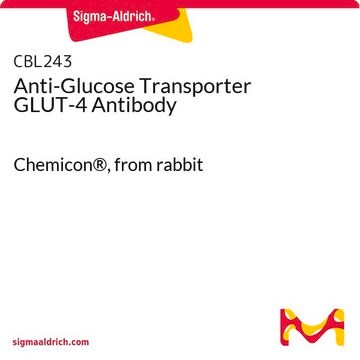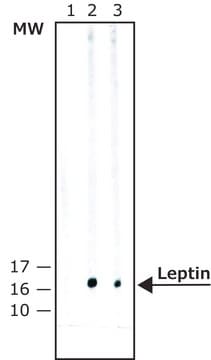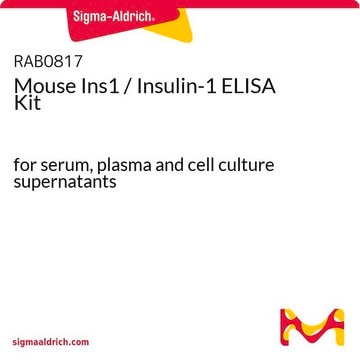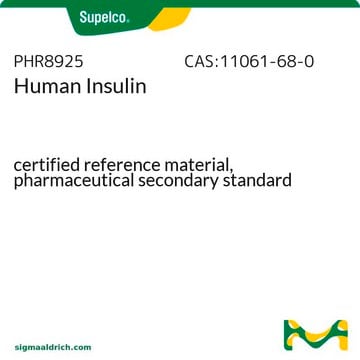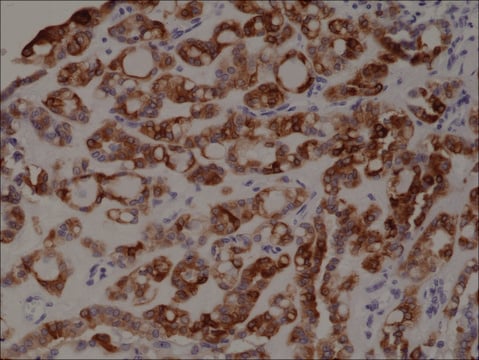SAB4200691
Anti-Insulin antibody, Mouse monoclonal
clone K36AC10, purified from hybridoma cell culture
Sinonimo/i:
INS
Scegli un formato
About This Item
Prodotti consigliati
Origine biologica
mouse
Livello qualitativo
Forma dell’anticorpo
purified immunoglobulin
Tipo di anticorpo
primary antibodies
Clone
K36AC10, monoclonal
Stato
buffered aqueous solution
Reattività contro le specie
guinea pig, porcine, bovine (proinsulin), rat, monkey, sheep, dog, horse, human (insulin ), rabbit
tecniche
immunoblotting: suitable
immunocytochemistry: suitable
immunofluorescence: 2.5-5 μg/mL using ß -TC-6 Mouse Embryo Pancrease Insulinoma cells.
immunohistochemistry: 10 μg/mL using heat-retrieved formalin-fixed, paraffin-embedded human pancreas sections and Biotin/ExtrAvidin®-Peroxidase staining system.
radioimmunoassay: suitable
Isotipo
IgG1
Condizioni di spedizione
dry ice
Temperatura di conservazione
−20°C
modifica post-traduzionali bersaglio
unmodified
Informazioni sul gene
bovine ... Ins(280829)
dog ... Ins(483665)
guinea pig ... Ins(100379579)
horse ... Ins(111776000)
human ... INS(3630)
pig ... Ins(397415)
rabbit ... Ins(100009181)
rhesus monkey ... Ins(704534)
Descrizione generale
Immunogeno
Applicazioni
Azioni biochim/fisiol
Stato fisico
Note legali
Esclusione di responsabilità
Non trovi il prodotto giusto?
Prova il nostro Motore di ricerca dei prodotti.
Codice della classe di stoccaggio
10 - Combustible liquids
Classe di pericolosità dell'acqua (WGK)
WGK 1
Punto d’infiammabilità (°F)
Not applicable
Punto d’infiammabilità (°C)
Not applicable
Scegli una delle versioni più recenti:
Certificati d'analisi (COA)
Non trovi la versione di tuo interesse?
Se hai bisogno di una versione specifica, puoi cercare il certificato tramite il numero di lotto.
Possiedi già questo prodotto?
I documenti relativi ai prodotti acquistati recentemente sono disponibili nell’Archivio dei documenti.
Active Filters
Il team dei nostri ricercatori vanta grande esperienza in tutte le aree della ricerca quali Life Science, scienza dei materiali, sintesi chimica, cromatografia, discipline analitiche, ecc..
Contatta l'Assistenza Tecnica.
